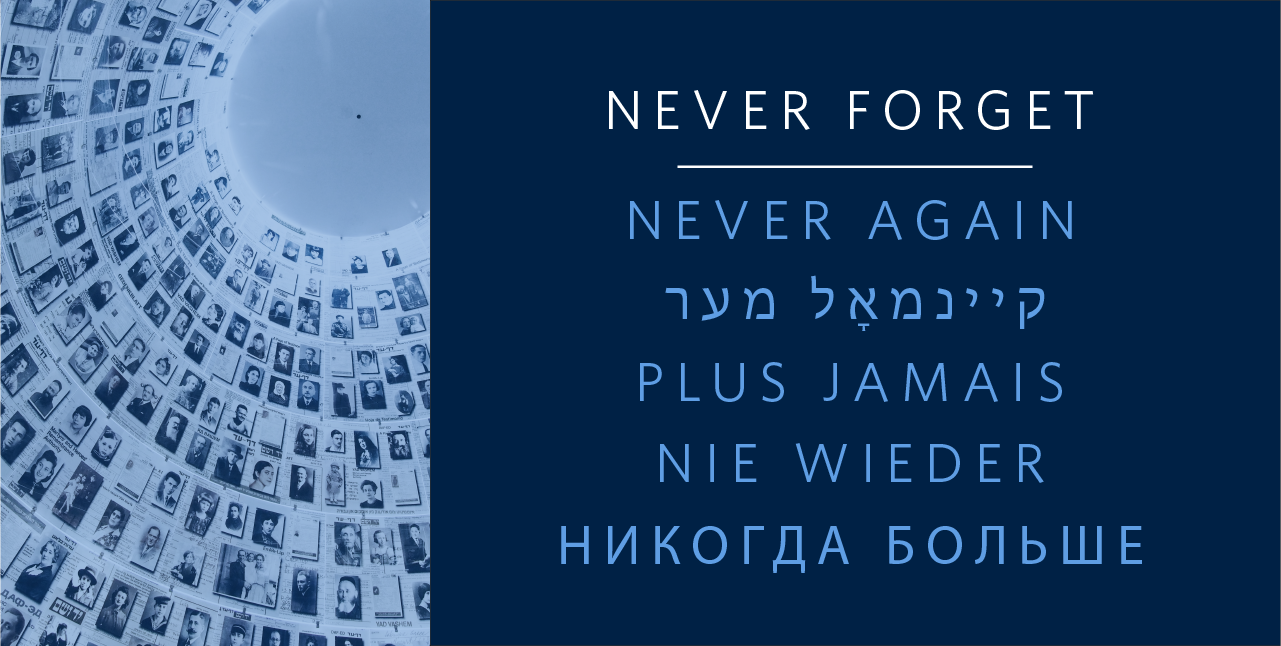Join us on January 27 in commemorating this important day

January 27 is International Holocaust Remembrance Day, an annual UNESCO tribute to the memory of the victims of the Holocaust. On this day we reiterate “Never Again”, and reaffirm our commitment to oppose antisemitism, racism, and other forms of intolerance and hatred that are the foundation for group-targeted violence and genocide.
History of International Holocaust Remembrance Day
In 2005, the United Nations General Assembly designated January 27 to mark the anniversary of the liberation of Auschwitz-Birkenau. It is a day to honour the victims of genocide and to remember and reflect upon the lessons they pass to future generations. The UN urges all member states to adopt this day of commemoration and to develop educational programs to help prevent future genocides.
We must also go beyond remembrance, and make sure that new generations know this history. We must apply the lessons of the Holocaust to today’s world. And we must do our utmost so that all peoples may enjoy the protection and rights for which the United Nations stands.Message by Secretary-General Ban Ki-Moon for the second observance of the Holocaust Victims Memorial Day on 19 January 2008
Why Is It Important?
The Holocaust ought not be relegated to the past. The lessons of the Holocaust reverberate across time and are a prism through which we may find guidance in dealing with the persistence of hatred, prejudice, racism, and discrimination evidenced in our continued engagement in dehumanizing discourse.
The consequences of the Holocaust are not in the past. They are with us today. Never Forget Never Again, the post-Holocaust rallying cry expressing optimism that the lessons of the Holocaust would eradicate genocide, is at risk of becoming an empty sentiment as the world continues to bear witness to genocides: Cambodia, Rwanda, Bosnia. Sadly, the list goes on.
Join us today as we echo the words of then President of the United States Barack Obama spoken in an address to mark Holocaust Remembrance Day in 2011:
We are reminded to remain ever-vigilant against the possibility of genocide, and to ensure that Never Again is not just a phrase but a principled cause … And we resolve to stand up against prejudice, stereotyping, and violence – including the scourge of [antisemitism] – around the globe.
Never forget means not only remembering what happened. To avoid the mistakes of the past we must support Holocaust education to promote social justice, human rights and genocide awareness. Remembering provokes reflection and insight into the dangers of remaining silent, apathetic and indifferent to the oppression of others.
Holocaust Education: A Necessity
Watch the video of Dr. Robert Krell speaking about the need for Holocaust education. Dr. Robert Krell is a Professor Emeritus in the Department of Psychiatry UBC. He was born in the Netherlands in 1940 and was a hidden child of the Holocaust. Dr. Krell has worked tirelessly throughout his career with Holocaust survivors and in the promotion of Holocaust education. He advocates Holocaust education at all levels of schooling and particularly in medical schools.
Learning and Remembrance in 2022
This year, the theme guiding the United Nations Holocaust remembrance and education is “Memory, Dignity and Justice”. Learn more and find commemorative events here
Read the statement from Premier John Horgan here
Without memory there is no culture. Without memory there would be no civilization, no society, no future.Elie Wiesel